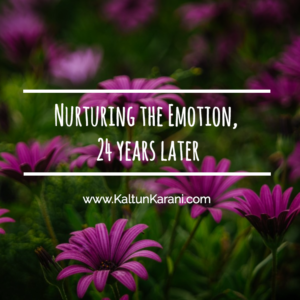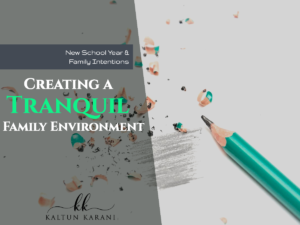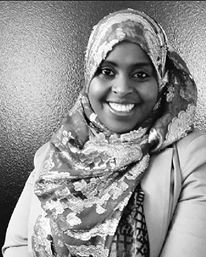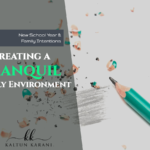
I was deeply touched recently by one of my classmates and a story she shared about engaging a child who seemed a little sad and down. When she genuinely engaged him the child expressed sadness over the death of a dear family member. As my classmate described the interaction between herself and this child, the evident tender care moved me to tears. I had to excuse myself and leave for the bathroom as I was shocked by what was happening to me. I was overwhelmed by the memory of my father and despite the fact that I have consoled friends over the loss of loved ones, this child’s experience of having an adult touch base with him about his sadness resonated with a time in my life where I had lost my father and because of the transitional situation my family was in at the time, the emotions were suppressed, not validated and improperly channeled. My father passed away in February of 1992, and 24 years later, as I heard this interaction, I cried about his death like it had just happened. It felt like a release of some sort of a delayed response. May Allah have mercy on him, grant him Jannah and enlighten his grave.
So why were the emotions delayed? The day my father passed away, I remember it being a happy day at school. It was about four months since my family had moved to Damascus Syria from the UAE. On that particular day I felt like I had finally adjusted to school and friends; something a 10 year old cared a lot about obviously. I came home and was given the news of my father’s death by my little brother who was 4.5 years old at the time. He didn’t know what death meant, so he told me in a cheering and delightful manner that: “Aabaa dhintay!” Somali for: “Dad is dead!” He said it like it was a celebration. My cousin had facial expressions that confirmed what my little brother shared. It was true, I was never going to see my father again. I tried so hard not to show my hurt feelings or tears because I didn’t want to show weakness to the person sitting in front of me; she wasn’t my favorite person. My response to this traumatic information became what I do whenever I’m faced with a difficult situation. I numb it out and do things to mask up the emotions, and I made sure I took a long shower so no one saw me sad. Alhamdulilah, learning this as an adult now has been helping me break some coping mechanisms I developed. It definitely isn’t easy, but learning to be aware of my emotions and why I do certain things as a default response to stress is in and of itself a valuable lesson in life.
Why do I believe that my emotions about the death of my father were not validated when I was a child? My family was in a transition period at this time and as a result the people I felt were my confidantes and source of comfort were not available to me. My mother and my sister were far away in Dubai, my cousin who lived with us who was kind and loving was too overwhelmed by sadness she needed to be comforted herself. In fact, my cousin herself had recently before my dad lost her own father and I am sure this was a tough time for her as well. My brothers were all grieving too and I don’t think they purposefully neglected to explain to their 10 year old sister what had happened. I was asked to take my little brother and go to the neighbors and play till the evening since the house would be filled with guests coming to give their condolences.
In early childhood, a child care provider or a caregiver is instructed and trained in how to meet children’s needs in the face of a crisis. One of the first things we do with children after ensuring their physical safety; is allowing them to express emotions, naming the emotion, validate the emotion, reassuring them, and guiding them to properly channel this emotion. This is part of a healthy emotional development. For a child, this is done by the mindfulness and intentional care-giving of an adult. If one ponders over the emotional turmoil or negative habits people are utilizing to handle difficult situations or stress, it is clear that there is a serious problem that stands in the way of wellness for so many people. We are all familiar with the workaholic who buries themselves in work to avoid challenging conversations at home, the passive aggressive response to the spouse that is not meeting an expectation, the spanking of children because of a dispute with a family member, or the pulling away from God, Allah subhanahu wa ta’ala, because of a pain another human has caused them.
One of my dear friends lost her father about two years ago and I know how difficult the time was for her. But Subhanna Allah, watching how the difficult experience made her closer to Allah was simply beautiful. There was something refreshing about her realizing her pain of losing her father was gently comforted and nurtured by Allah subhanahu wa ta’ala which gave her emotional wellness despite the definite life-long grieving.
This wisdom, however, doesn’t always come easy. My intention is to share with others what needs to happen for children for them to develop in wellness and learn how to positively handle difficult emotions. As a parent, and as someone who is following her passion of creating positive environments for children and youth, I recognize in my own life and in the lives of many I talked to that emotional nurturing from adults wasn’t always available. We felt unheard, our feelings invalidated and as a result we perhaps learned to channel our emotions in a way that is not best for us.
“Ya Allah, guide our hearts to seek comfort in your remembrance and in your pleasure.”
As Muslims who find guidance in the Quran and the example of the prophet Muhammad salla Allahu alayhi wassalam, it is important to note that emotions are not ignored by Allah subhanahu wa ta’ala and the prophet salla Allahu alayhi wassalam modeled perfectly for us how to nurture emotions. One of my favorite verses in the Quran about this topic is when Allah subhanahu wa ta’ala say to Muhammad salla Allahu alayhi wassalam: “we know it saddens you what they say about you…” Al-Ana’m 33. In many other verses that are similar in context, Allah validates his emotions and comforts him by giving an explanation for what is causing the emotion. Allah then instructs him on what to do to manage those difficult emotions: “Glorify the name of your Rabb and make a habit out of prostration, and worship your Rabb until death comes to you.” Hijr 98-99.
I’ve witnessed and been told about this truly disheartening phenomenon where people going through the experience of losing a loved one are told to be patient by suppressing the painful emotions. They are warned to not cry and at times are even questioned why they should mourn when death is Haqq (absolute certainty). What is blood boiling about this is that some people will say it as if it is what Allah subhanahu wa ta’ala wants the person in mourning to do. They literally add “ittaqi Allah!” “Be conscious of Allah!” As if Allah subhanahu wa ta’ala will be angry with you if you cry or feel sad about the death of your loved one. Didn’t Muhammad salla Allahu alayhi wassalam grief and cry with tears over the death of his son Ibrahim? Didn’t he visit Abu Umayr, the brother of Anas ibn Malik just to comfort him over the loss of his bird! Didn’t Ya’qub alayhi assalam lose his eye sight out of grief for the loss of his son Yusuf? Didn’t those noble prophets of Allah make powerful dua for Allah to comfort them as they dealt with those difficult emotions?
I know there will always be people out there who speak without knowledge and awareness of how their words impact others. That will make you sad and hurt, it is OK. They don’t realize what they are doing is hurtful or causing you even more difficulty. It will be fine if we train our hearts to seek what we are longing for from Allah subhanahu wa ta’ala. I have not perfected this myself, but it is a deep desire of mine. I ask Allah to make seeking Him is my comfort in the face of all situations.





